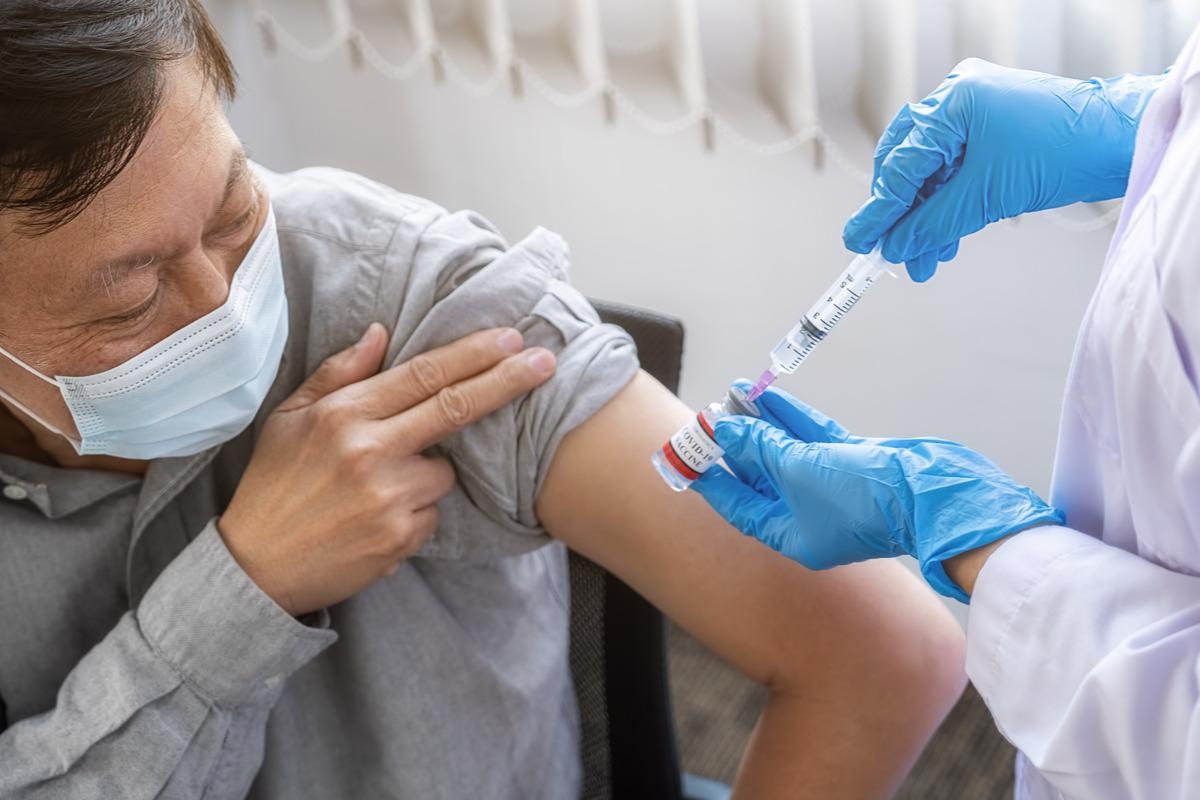Global regulatory bodies have given emergency approvals to different manufacturers for producing vaccines, late in 2020. This was done to keep the severe form of coronavirus disease 2019 (COVID-19) at bay, considering the number of hospitalizations and deaths caused thus far. Vaccines have been the best line of defense against the pandemic to date.
Results from clinical trials showed mRNA based covid-19 vaccines, mRNA-1273 (Moderna Inc, Cambridge, USA; Spikevax) and BNT162b2 (Pfizer Inc, New York, USA; BioNTech Manufacturing GmbH, Mainz, Germany; Comirnaty) to be highly efficacious (94% and 95%, respectively) against symptomatic COVID-19. Emergency regulatory approvals in the US, EU, UK, and other countries beginning in December 2020, made these vaccines available for phased mass vaccination campaigns for high-risk patients first and then for the general population.
 Study: Effectiveness of mRNA-1273 against delta, mu, and other emerging variants of SARS-CoV-2: test negative case-control study. Image Credit: PIC SNIPE/Shutterstock
Study: Effectiveness of mRNA-1273 against delta, mu, and other emerging variants of SARS-CoV-2: test negative case-control study. Image Credit: PIC SNIPE/Shutterstock
Results from multiple real-world studies conducted before the severe acute respiratory syndrome coronavirus 2 (SARS-CoV-2) delta variant (B.1.617.2 and AY lineage) became dominant reported high effectiveness of mRNA based vaccines against SARS-CoV-2 infection, ranging between 82% to 100% and severe disease and hospitalization with COVID-19, ranging between 87 to 96%. However, only a few of these studies identified variant-specific vaccine effectiveness.
A Qatar-based, vaccine effectiveness study for the mRNA-1273 vaccine against infection with alpha (B.1.1.7) and beta (B.1.351) SARS-CoV-2 variants showed the effectiveness to be 100% and 96.4%, respectively. Another Canadian study found vaccine effectiveness of mRNA based vaccines against alpha and beta/gamma (P.1) variants to be 90% and 88%, respectively. However, with the emergence of the delta variant, there have been fewer studies reporting variant-specific vaccine-effectiveness, which has been shown to be more contagious and infectious in comparison to the earlier variants.
Keeping this in mind, researchers published a study in the British Medical Journal evaluating the vaccine effectiveness of mRNA-1273 against variants including delta by time since vaccination at Kaiser Permanente Southern California (KPSC).
The study
Researchers included a cohort from the KPSC. KPSC is an integrated healthcare system with de-identified data from 15 hospitals and associated medical offices across Southern California. With a population size of more than 4.6 million having health plans in the system, the data was representative of diverse socio-demographic characteristics of the underlying population.
Vaccines were administered from 18th December 2020, and samples collected included nasopharyngeal and oropharyngeal swabs or saliva samples (for asymptomatic patients). RT-PCR tests confirmed the presence of SARS-CoV-2 infection. All collected samples were tested for delta (B.1.617.2, AY.*), alpha (B.1.1.7), epsilon (B.1.427, B.1.429), gamma (P.1, P.1.1, P.1.2), iota (B.1.526, B.1.526.1, B.1.526.2), mu (B.1.621, B.1.621.1), and other (beta, eta, kappa, and any other) variants.
The main outcome measures for the researchers included a number of patients with SARS-CoV-2 infection and hospital admission with COVID-19 for different variants. In pre-specified analysis for each variant type, test positive cases were matched 1:5 to test negative controls on the basis of age, sex, race/ethnicity, and specimen collection date. Conditional logistic regression was used to compare odds of vaccination among positive cases against controls, with adjustment for confounding factors. Vaccine effectiveness was calculated as (1–odds ratio) × 100%.
The study included 8,153 cases that were analyzed against matched healthy controls. Double-dose vaccine effectiveness was calculated to be 86.7% against infection with the delta variant, 98.4% against alpha, 90.4% against mu, and between 96-98% against other identified variants and 79.9% against unidentified variants.
Vaccine effectiveness against hospital admission with the delta variant was 97.5%. Vaccine effectiveness against infection with the delta variant reduced from 94.1% within 14-60 days after vaccination to 80.0% within 151-180 days after vaccination. The waning away of vaccine efficiency was comparatively slower for non-delta variants. Vaccine effectiveness against delta infection was lower among the elderly aged ≥65 years than those aged 18-64 years. Single-dose vaccine effectiveness was 77.0% against infection with the delta variant.
Implications
This study was crucial in determining variant-specific vaccine effectiveness of mRNA-1273 among patients with SARS-CoV-2 infection. The statistics added valuable data to the existing repository, especially that pertaining to the delta variant.
This study emphasized the effectiveness of two doses of mRNA-1273 in preventing infection with SARS-CoV-2 and hospital admission with covid-19 due to variants including delta. Moderate declines in vaccine effectiveness were observed against infection with the delta variant. Larger studies conducted over time would be helpful in estimating the continued efficacy of vaccines against variants of concern and to determine the course of action regarding booster doses.